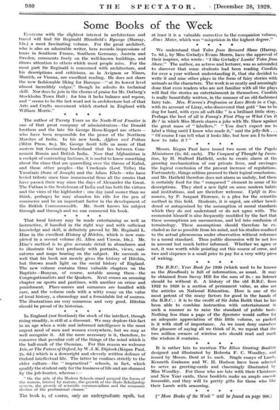In England (not Scotland) the stock of the intellect, though
rising steadily, is still at a discount. We may deplore this fact in an age when a wide and informed intelligence is the most urgent need of men and women everywhere, but we may as
well recognize it. All the more necessary is it, therefore, to conserve that peculiar cult of the things of the mind which is
the hall-mark of the Oxonian. . For this reason we welcome Isis, or The Future of Oxford, by W. J. K. Diplock (Kegan Paul, 2s. 6d.) which is a downright and cleverly written defence of Oxford intellectual life. The latter he confines strictly to the older culture—the " impractical " schools, in fact, which qualify the student only for the business of life and are shunned by the job-hunter, whereas :— " On the side of the Modem Schools stand arrayed the forces of the women, limited by statute, the growth of the State Scholarship system, the growth of scientific commercialism and the economic decline of the professional classes."
The book is, of course, only an undergraduate squib, but at least it is a valuable corrective to the companion volume, Alma Mater, which was " misprision in the highest degree."
• * *
































 Previous page
Previous page